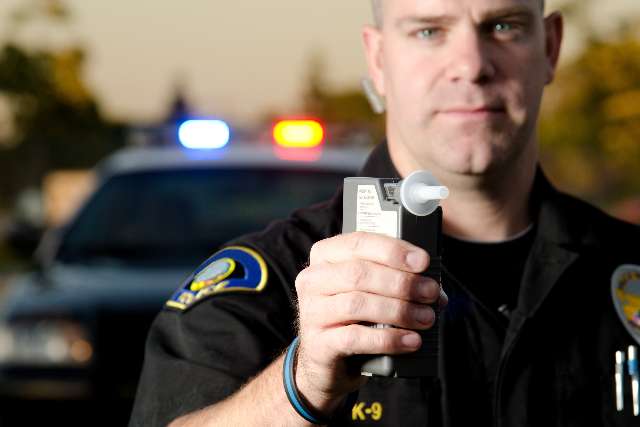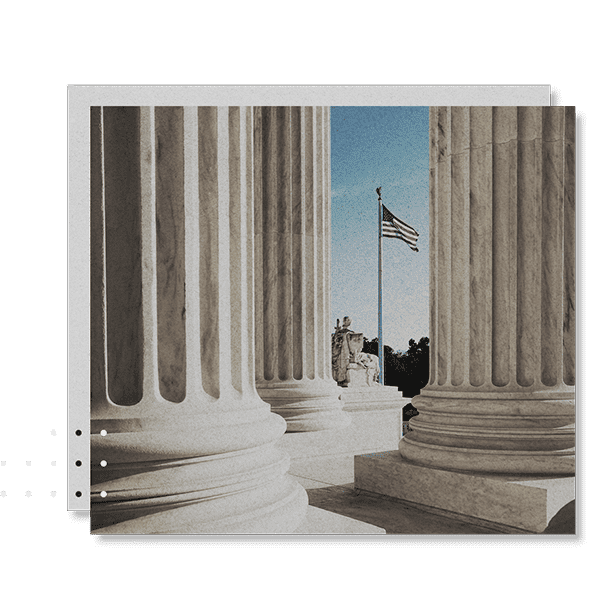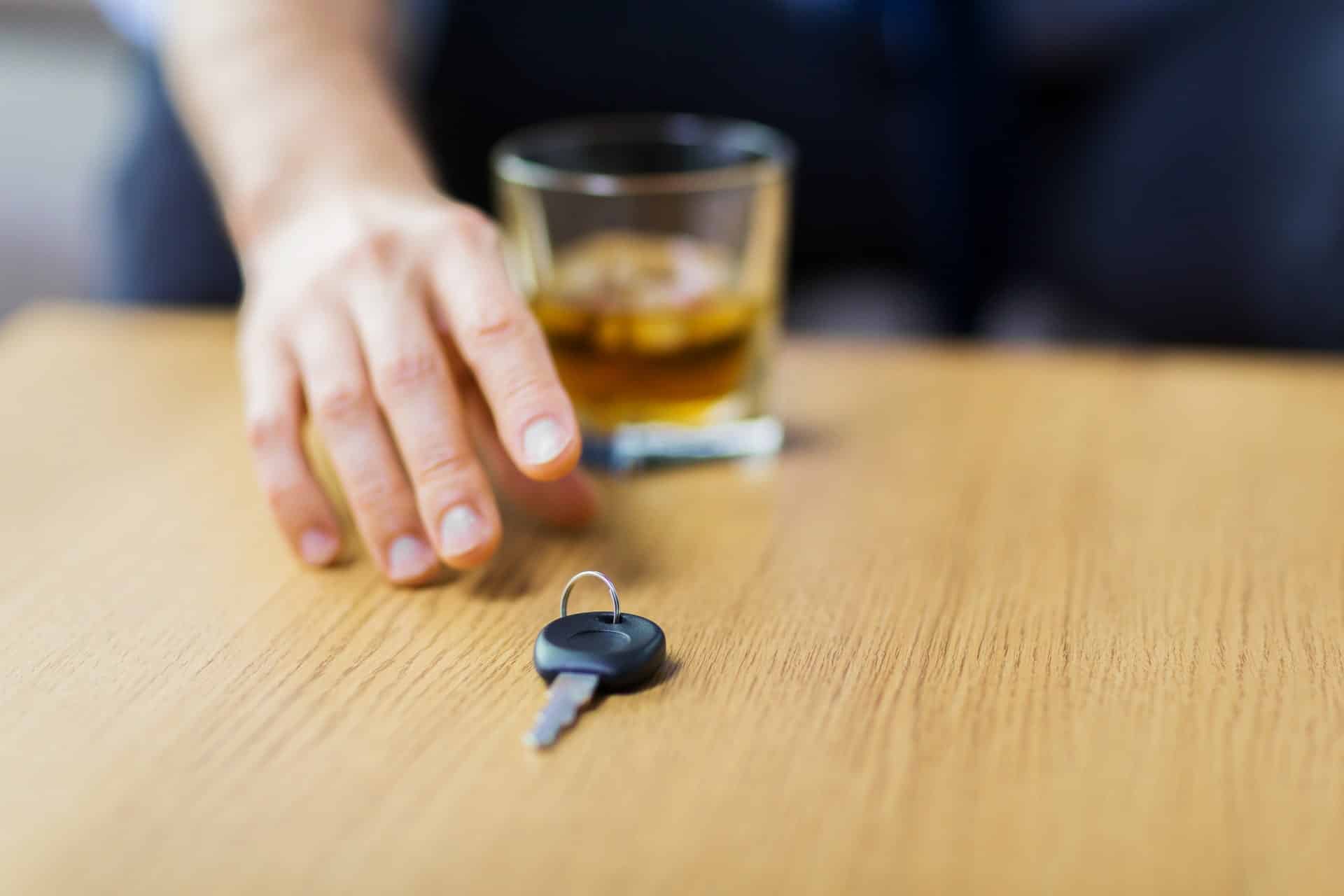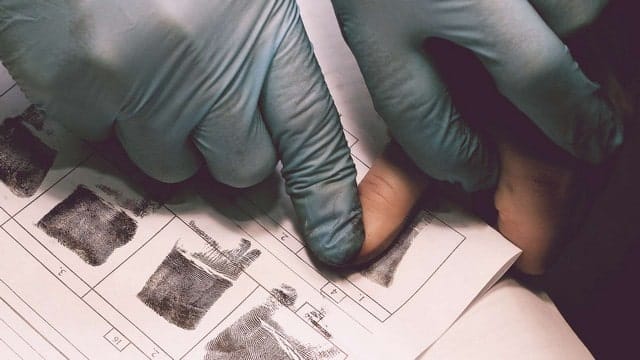Oliverson Law: Expert DUI Defense Lawyer in Arizona
Do not let a DUI case ruin your life. If you face DUI charges, an experienced DUI lawyer in Arizona can help you construct a solid defense against your DUI allegations. Attorney Derek Oliverson is a former DUI judge, prosecutor, and police officer.
Experienced Arizona DUI Lawyer Protecting Your Rights
At Oliverson Law You’ll Have an Experienced and Aggressive DUI Lawyer Who Has Been on Every Side of a DUI Case as a DUI Judge, Police Officer, and Prosecutor. Contact us now at
(480) 582-3637 for a free consultation!
Perhaps you were having a few drinks with colleagues or friends, got into your car, and inadvertently drove under the influence. You get pulled over by police officers on your way home, possibly for reckless driving, speeding, or failing to maintain your trave lane. The police officers ask you to get out of the car for field sobriety tests and to blow into the portable breath testing device. The blood alcohol concentration detected is then found to be higher than the limit.
Unfortunately, when this happens, law enforcement will deem you intoxicated and arrest you for traffic violations and driving under the influence. In that case, you will need an experienced attorney if you want to beat the DUI charge. Arizona takes DUI allegations quite seriously, and you may end up facing severe penalties.
DUI, or driving under the influence, is a crime or offense of operating a motor vehicle under the influence of alcohol or other drugs. Drunk or impaired driving is taken seriously in all states. If you get convicted of a DUI, you might lose your license, pay fines, and/or face jail or prison time. This is where a DUI defense lawyer comes in.

Having the right DUI attorney in Arizona is important to defend your rights and minimize damage.
Call Oliverson Law DUI & Criminal Defense at (480) 582-3637 to discuss your case.
What Is the Actual Legal Limit for a DUI That You Need to Be Aware of in Phoenix, Arizona?
In Arizona, police officers use their discretion for blood alcohol concentration (BAC) between 0.05-0.79. A person with a blood alcohol concentration of 0.08 or more is considered intoxicated in all circumstances. Persons under the age of 21 caught driving under the influence will be charged with Underage DUI drinking.
DUI Laws in Arizona
The State of Arizona takes all DUI prosecutions seriously. Impaired driving may escalate into more severe crimes, depending on the facts and what transpires.
Driving under the influence of alcohol or drugs in Arizona is a Class 1 misdemeanor for a first or second offense unless some additional aggravating elements are present.
The reality of DUI cases is that many upstanding citizens commit this offense at some point. One of the reasons the founder of Oliverson Law DUI & Criminal Defense, Derek Oliverson, left being a DUI judge to help those who have been charged, is due to the fact that most people charged with DUI are good people who may have made one bad decision. He saw so many DUI defendants being represented by attorneys who were not aggressively representing their clients and defending their rights. He left the bench committed to fight to protect the rights of all individuals charged with DUI. Some people do not get arrested for it, and they go on with their lives, not thinking twice about it. However, those who get arrested quickly realize that an arrest and criminal conviction for DUI/DWI in Arizona will have significant consequences.

It is imperative to consult with and retain an aggressive and experienced Arizona DUI attorney knowledgeable on how these cases are investigated, prosecuted, and defended.
Misdemeanor DUI Offenses in Arizona
How is DUI defined? The answer is codified in the Arizona Revised Statutes (A.R.S.).
DUI under A.R.S. 28-1381(A)(1) through (A)(4). Driving under the influence of alcohol or drugs is governed under ARS 28-1381(A), which states:
It is unlawful for a person to (A) drive or (B) be in actual physical control of a vehicle in Arizona under any of the following circumstances:
- While under the influence of intoxicating liquor, any drug, a vapor releasing substance containing a toxic substance, or any combination of liquor, drugs or vapor releasing substances if the person is impaired to the slightest degree. ARS 28-1381(A)(1).
- If the person has an alcohol concentration of 0.08 or more within two hours of (A) driving or (B) being in actual physical control of the vehicle and the alcohol concentration results from alcohol consumed either before or while driving or being in actual physical control of the vehicle. ARS 28-1381(A)(2).
- While there is any drug defined in [ARS] section 13-3401 or its metabolite in the person’s body. ARS 28-1381(A)(3).
- If the vehicle is a commercial motor vehicle that requires a person to obtain a commercial driver license as defined in section 28-3001 and the person has an alcohol concentration of 0.04 or more. ARS 28-1381(A)(4).
Were You Driving or in Actual Physical Control of a Vehicle?
DUI statutes in Arizona require a person to be either driving or be in “actual physical control” of a vehicle.
“Driving” means exactly what it states. This is the typical situation of a person being stopped while in the act of driving. There is not usually much factual dispute as to this element when the person is stopped while driving. However, a prosecution where a legitimate defense of “actual physical control” is raised may present some difficulties.
Actual physical control involves situations where law enforcement, or another witness, does not observe a person driving. This can occur when a person’s vehicle is disabled for some reason or is parked at a location with the person within a short proximity. There is a factual analysis in determining whether or not someone is in “actual physical control” of a vehicle. This is based on a 1995 Arizona Supreme Court case that ruled whether or not a driver could be found in actual physical control of a vehicle depended on the “totality of the circumstances,” which meant a jury was to look at all available facts (not just where the vehicle was, and whether the keys were in the ignition).
In fact, juries should consider the “totality of the circumstances” to determine whether the person’s current or imminent control of the vehicle presented a real danger to themself or others at the time alleged.
Some of the factors to be considered in a “totality of the circumstances” analysis are:
- Was the vehicle running?
- What was the location of the keys?
- Was the driver awake or asleep?
- Did the driver voluntarily pull off to the side of the road?
- Was the heater or air conditioner on?
- Was there any explanation for the circumstances shown by the evidence?
- Was the ignition on?
- What position was the driver found in?
- Were the headlights on or off?
- What was the time of day?
- Were the windows up or down?
Some Recent Case Results
Helping good people get out of a bad situation.

DUI Charges
Bring your case to us.
1ST OFFENsE DUI
Aggravated DUI
Super Extreme DUI
Vehicular Manslaughter
DUI Consequences
2ND OFFENsE DUI
EXTREME DUI
Underage Drinking And Driving
WHAT IS DUI
AFTER A DUI ARREST
Field Sobriety Tests & Trying to Prove You Are Impaired
Under ARS 28-1381(A)(1), the law does not require the person to have a specific amount of a substance (alcohol or drugs) in their system (however, if a person has a BAC of .08 or greater in their system, there is a rebuttable presumption that the person is impaired). Rather, this is a factual determination, and law enforcement will identify factors that they feel are indicative of someone being impaired.
A person’s driving behavior may be noted (e.g., were they swerving or weaving within their own lane, were they speeding or traveling at a speed under the speed limit, were their lights on?). The officer will also take note of the person’s appearance (e.g., bloodshot watery eyes, slurred speech, inability to follow instructions, inability to maintain balance, etc.) and use a totality of the circumstances approach in making an arrest decision. Officers further develop these observations while conducting standardized field sobriety tests (FSTs).
A person is under no obligation to perform FSTs, and they rarely work in anybody’s favor, as they are tests requiring people to balance and divide their attention between balancing and following instructions from a law enforcement officer. Dividing attention is a huge focus for law enforcement in these investigations, as one must be able to effectively divide their attention while operating a motor vehicle.
Alcohol generally impacts one’s ability to divide their attention. Nevertheless, these field sobriety tests do nothing but provide the officer the ability to document a lack of balance and a lack of an ability for one to divide their attention. This will almost always lead to an arrest.

The Significance of Blood Alcohol Concentration within Two Hours of Driving
Under ARS 28-1381(A)(2), to be convicted, a person must have a Blood Alcohol Content (BAC) of 0.08 or greater within two hours of driving or being in actual physical control of the vehicle.
Alcohol consumption that places the person above a 0.08 BAC must have been consumed before the person drove or was in actual physical control of the vehicle. Indeed, if a person consumes alcohol after driving during that two-hour window, generally prior to being contacted by law enforcement, the State will likely not obtain a conviction and may be hard-pressed to go forward.
Also, there may be an issue if law enforcement did not obtain the sample of breath or blood within two hours of the person driving or being in actual physical control of the vehicle. This is most likely the case if the person’s BAC is close to the 0.08 threshold.
However, law enforcement, through their criminalists, will be able to do a “retrograde,” and relate-back the BAC to within two hours of driving, and may even give an opinion as to what the BAC was a the time of driving or being in actual physical control of the vehicle. Law enforcement makes this determination based on a general elimination rate of alcohol in the human body.
However, other factors should be considered that law enforcement does not always have access to, including when the person last ate, what the person last ate, how much the person had to drink, what the person had to drink, when the person had their first drink, and when they consumed their last drink.
Law enforcement will attempt to obtain this information out of a person during a DUI “interview.” This will make their retrograde more accurate or reliable.
A person under investigation should always consult an Arizona DUI lawyer immediately before the investigation starts, if possible. Through a quick consultation, a person will be advised that they must provide a sample of their blood, breath, or urine, but that they can refuse the field sobriety tests and the portable breath test in the field, and refuse to answer questions with the exception of providing their real name and identification. It will never work to anybody’s advantage to lie to law enforcement. However, a lie is not necessary when someone has a right to remain silent.
You Might Lose Your License
It is important to know that after the traffic stop, law enforcement will either release the person or place them under arrest for DUI and transport them to either the police department, jail, or a DUI van.
Upon arrival, the law enforcement officer will read the Admin Per Se/Implied Consent Affidavit. This affidavit will inform the person that they must submit to a test of their blood, breath, or urine (at the law enforcement officer’s discretion). If the BAC comes back at 0.08 percent or greater, the person will lose their Arizona driving privileges for ninety days. However, the Admin Per Se/Implied Consent Affidavit will also instruct that if the person refuses to submit to the specified test, they will lose their license for twelve months. It is vital that your attorney request a hearing within 15 days of you being served with the Admin Per Se Affidavit so that the suspension is paused and you are able to fight it at the MVD Executive Hearing Office. At Oliverson Law DUI & Criminal Defense, all of our DUI representations include us representing you with MVD as well as in the court.
What You Should Know About the Intoxilyzer Breath Test
The State generally obtains breath samples from people through the use of the intoxilyzer breath test. The intox is an machine used to analyze the alcohol content in a person’s breath.
When a person consumes alcohol, the alcohol enters into the person’s bloodstream.
Oxygen-rich blood circulates the lungs, which translates into the Intox being able to read the alcohol concentration blown out through someone’s breath.
The State must adequately maintain the Intox, and quality assurance and periodic maintenance records must be kept memorializing the periodic checks. Further, the law enforcement officer must go through a specific checklist and specific protocol from the time they see the “vehicle in motion” to the time they complete the investigation. For example, there must be a “deprivation period” provided (where law enforcement ensures the person does not regurgitate, put anything in their mouth, etc.) before having the person submit to the breath test.
Law enforcement sometimes takes shortcuts with this and will count the deprivation period as occurring when the officer is driving and the person is in the back seat, not fully being observed by the officer. Further, some specifics must be present for a breath test to be admissible in trial. It is essential to consult with an experienced attorney, as DUI investigations and prosecutions can be complex, with numerous issues not known by people inexperienced in these matters.
A Few Words About Drug or Drug Metabolite DUI
This is known as a “drug DUI.” Although there is no doubt there are significant numbers of arrests for driving under the influence of marijuana, heroin, methamphetamine, and other street drugs, this type of offense is commonly prosecuted in situations where people are prescribed the drugs.
A prescription for a drug will serve as a defense under this specific section ARS 28-1381(A)(3). However, pursuant to ARS 28-1381(B), it is not a defense to an “A(1)” or an “impairment to the slightest degree” DUI that the person is or has been entitled to use the drug under Arizona law. As such, even if a prescription is in place, a person cannot operate a motor vehicle in the State of Arizona if that prescription drug impairs their ability to operate a vehicle to the slightest degree.
In a “drug” DUI, there is not a specific threshold cutoff (like a 0.08 for alcohol). The result will be reported in amounts on the scientific examination report generated by law enforcement. An expert will likely be able to give opinions based on their training and experience if a drug is within or outside of the therapeutic level. Further, an expert may be able to give opinions as to what impact those levels would generally have on an individual (all of which may be impacted by years of use, how often used, and biological factors concerning the person such as height, weight, etc.).
Your Right to Speak with a DUI Defense Attorney in Arizona
Law enforcement must give a person an opportunity to consult with an attorney before submitting to the tests. However, this consultation cannot “unreasonably delay” the investigation. At Oliverson Law we are prepared and available day or night to answer your call and advise you how to proceed if you are being investigated for a DUI.
Generally, law enforcement will place the person in a room, with a phone and a phone book, for some time to reach out to an attorney for advice. If law enforcement does not give the person an opportunity to consult with an attorney, a suppression of the test results would be the remedy. In addition, law enforcement must give the person an opportunity to obtain an independent test and advise the person of such. A failure of law enforcement to do so may result in a dismissal of the case.
The Admin Per Se/Implied Consent Affidavit form that law enforcement will produce also provides a temporary fifteen-day license should a breath sample be above .08 or the chemical test is refused. This is another reason it is vital for a person to contact a DUI defense attorney for a free consultation immediately, as specific time frames need to be met for license purposes.
Specifically, an attorney would immediately know to file a Notice of Appearance and Request for Executive Hearing with the Arizona DMV, which would automatically extend the 15-day temporary license until at least the time the hearing is set.

The Best DUI Lawyers in Arizona Can Explain What Happens After You Are Arrested for a DUI Charge
According to Arizona’s DUI laws, if a police officer believes that you were driving or in actual physical control of a vehicle while drunk, they have the right to arrest you.
In most DUI cases in Phoenix, AZ, every DUI arrest has two separate cases: your criminal cases (involving DUI charges and any other tickets you received) and your license suspension. The good thing with Phoenix, AZ, DUI convictions is that you are innocent until proven guilty in a court of law. Your DUI conviction will not appear in your records until the case has had a hearing.
License suspensions are mandatory in Phoenix. According to Arizona DUI law, your driving license will be automatically suspended, and you will be issued with a temporary one until your hearing date. You are also entitled to a court hearing for the withdrawal of the suspension.
With a good criminal defense team, you stand a chance to win your case and get your driver’s license back.

Why Oliverson Law DUI & Criminal Defense?

Over 30 Years of Collective Experience
Over the length of their careers, the attorneys at Oliverson Law DUI & Criminal Defense have helped thousands of people successfully fight their criminal charges.

Highly Communicative & Responsive
Our attorneys will work closely with you, diligently keeping you fully informed and updated on your case from beginning to end.

Former Judge and Prosecutors
As former prosecutors, police officers and judges, our attorneys have experience on all sides of the law. This special insight allows them to better defend your case.

Team Approach to Your Case
At Oliverson Law DUI & Criminal Defense, you get access to multiple experienced attorneys who work together to achieve the best possible result for you.
Get Started Today
Schedule a free consultation.
Best DUI Lawyer Ratings in Arizona
Evidence of a good job well done is found in the ratings and reviews section of a law firm’s website. You should look for preeminent lawyers from a criminal defense law firm with high ratings and excellent reviews. At Oliverson Law DUI & Criminal Defense, we boast countless excellent client reviews.
Arizona DUI Lawyer Reviews
“Derek’s knowledge of the legal system and his background as a former judge is a definite advantage to his clients,” says Rose, a former Oliverson Law DUI & Criminal Defense client.
Our AZ lawyers have years of experience with the Maricopa County Superior Court and other courts regarding DUI cases. To add to this experience, our DUI and vehicular crimes criminal defense team includes former prosecutors and judges.
Contact the Team of Phoenix DUI Lawyers at Our Law Firm Today
At Oliverson Law DUI & Criminal Defense, our goal is to protect the rights, freedom, and futures of those who turn to us. Our criminal defense team works diligently to offer sound legal advice to all our DUI clients. We are located at 60 East Rio Salado Parkway, Suite 900, Tempe, Arizona 85281, and we are ready to take your call. For a free initial consultation, dial our 24-hour hotline number below. We look forward to assisting you.
